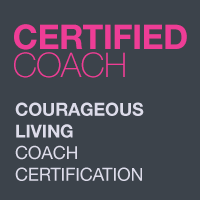 May. The month of many beginnings and endings for me. The month I started my first job, got engaged, moved into the home where I currently live. These were beautiful moments that make my heart full when I remember.
May. The month of many beginnings and endings for me. The month I started my first job, got engaged, moved into the home where I currently live. These were beautiful moments that make my heart full when I remember.
May. The month my mom passed away (it’s actually the fourth anniversary of her death today) and when my marriage (almost) ended. These were the tough times that required clawing back to life, a daily struggle to face what lay ahead, heartbreak that I thought I would never recover from.
Those years of upheavals, of massive change, have given me 10 lessons in how to deal, especially with grief and endings.
1. Feel the grief.
Identify it and own it. (I’m sad. I’m angry. I’m terrified.) Allow it to fill you up. Allow your body to feel it, no matter how painful it is. Scream. Cry. Let it be released. Try not to escape from feeling it.
Let difficulty transform you. And it will. In my experience, we just need help in learning how not to run away.—Pema Chödrön
2. Say goodbye properly.
Change means letting go—your old home, your mom, your identity. A funeral is a beautiful ritual for saying goodbye. There is usually a mass. People say beautiful things about the person who is gone. And there is symbolic closure in a burial.
If there is none, create your own.
- Write in your journal—let it all out here: the anger, the frustration, the pain.
- Gather your friends around and talk about what you’ve lost and remember the good times. End with a toast to the past and the future.
- Write a goodbye letter and your wishes for yourself and your loved one, tie it to a ballon and let it go.
- Take something that reminds you of her wherever you go.
Cry again.
3. Be compassionate with yourself.
This isn’t the time to tell yourself to buck up, to get over it, to compare yourself to people who seem to be dealing with pain better.
This is the time to take naps, to eat good, nourishing food, to be with people who love you, to treat yourself with radical kindness.
Allow yourself to be soft, to just—step by step, breath by breath—go with what’s in front of you.
This genuine heart of sadness can teach us great compassion. It can humble us when we’re arrogant and soften us when we are unkind.—Pema Chödrön
4. Don’t numb yourself…
…with shopping, eating, wine, work, playing video games. But if you do fall (and you probably will), just be aware of the pattern and be kind to yourself.
We cannot selectively numb emotions, when we numb the painful emotions, we also numb the positive emotions.—Brené Brown
5. Forgive.
You may be angry at the person for leaving (even if she had died). You may be angry at yourself for wrong decisions. You may be angry why your life looks nothing like you had planned.
Forgive anyway.
This will be the hardest thing to do because forgiveness cannot be turned on with the desire to forgive. It is a choice to not let yourself get mired in anger, in bitterness, in pain. It is seeing that there’s another way to live life—more peace, more love. Forgiveness is a daily practice of connecting with the part of you that’s bigger than yourself, with grace, with the divine.
6. Pray.
When you are experiencing the kind of pain that’s humanly impossible to endure, then it’s time to ask for divine help. It doesn’t matter if you haven’t prayed in a long time, pain like this is a wake-up call to rekindle your relationship with God.
The prayer at this time is simple:
- Lift up the pain.
- Ask for help to get through it.
- Repeat.
7. Build your support group.
Call your friends. Be with people who love you. Ask your boss for understanding. Tell people what you’re going through. This is the time to surround yourself with people you want to be with, not people who drag you down, whose negative energy you don’t need right now.
8. Know that this too shall pass.
You will probably hear this over and over again, along with “time heals all wounds.” It is true. It will pass. In time.
But it’s not true that time will heal all wounds. Time helps. But the wound will always be there. Covered up a little better. Some sort of coping mechanism in place.
But you will find yourself crying at unexpected moments, even when you thought you had “healed.” That will be fine. You are normal. You are human.
9. Be grateful.
Reflect on the beauty of their lives and the gifts that they have given you just by their presence in yours. Thank them for being in your life.
Every day, to shift your attention from your loss and back to life, start a gratitude practice. Before sleeping, write down five things you are grateful for. It can start with very simple things like: “I was able to brush my teeth.” “The sky is blue today.” “My daughter’s laughter.”
You will see that there is still beauty, there is still joy, that life goes on, despite your loss.
And that will help.
10. Don’t pile change on change.
Don’t build a new house on ashes. Don’t start another thing (even if it’s as simple as repainting your room) or end something else (like, changing your medication) in the middle of grief or loss. This is not the time.







